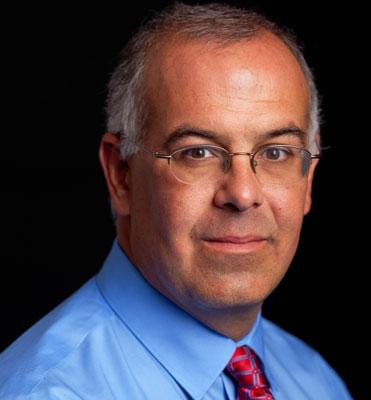By Kristy Volmert | Staff Writer
David Brooks, bestselling author and New York Times columnist, will lecture on civil discourse at 6:30 p.m. Sept. 10 in Waco Hall to open Baylor’s Fall 2024 Conversation Series.
His lecture will cover the topic of civil discourse and he will enlighten the students on how to approach the political and social affairs they will be faced with this election year.
David Brooks is a Canadian-born American journalist and political commentator. Best known for his longstanding opinion column in The New York Times, Brooks has a heavy impact on students belonging to America’s next generation of politicians. Although commonly labelled a “moderate conservative” on the political spectrum, Brooks does not explicitly associate himself with any one political party or ideology.
David Corey, professor of political science in the honors program and director of Baylor in Washington, teaches courses on civil discourse. Corey said Brooks is an interesting figure in today’s politics.
“He reasons to his own ways of viewing things, which makes him interesting,” Corey said. “Because he’s capable of really understanding people, he’s capable of seeing the complex sides of a political issue, not just one side.”
Incoming freshmen in the Honors College were assigned Brooks’ book, How to Know a Person: The Art of Seeing Others Deeply and Being Deeply Seen, to read over the summer.
Benton, Ark., freshman Lochlan Walsh said she got her ticket to the event and thoroughly enjoyed reading Brooks’ new book.
“In all honesty, at first I thought it was just going to be another reading assignment that I have to fight to get through,” Walsh said. “But once I started it, I was enamored. It was so fascinating. The way that David Brooks talks about getting to know other people while he himself has had struggles with it inspires me to do the same.”
According to Corey, civil discourse is the driving factor for political peace, and a lack of it contributes greatly to modern political turmoil.
“It’s breaking down,” Corey said. “If we don’t understand why people think differently from us, I think that ends up with politics looking like a tournament of wills, because since we can’t understand people, we just have to defeat them.”
According to Corey, the ability to discuss politics with civility is essential, and it is becoming more essential as politicians in office change.
“Good politics actually requires that citizens understand each other’s reasons for thinking what they do, and then we can try to reach compromise…or we can try to explain why some people are wrong and some people are right,” Corey said. “But without communication, that’s impossible, and communication requires civility.”
Walsh said she is hopeful that Brooks’ appearance will change people’s approach to political discussions.
“I feel like a lot of the humanity has been taken out of politics,” Walsh said. “And, I feel like he’s really going to help people remember that in the end, we’re all just individuals, learning and growing and expressing ourselves.”
Salinas, Calif., freshman Ashley Bishop said her experience reading Brooks’ book opened her mind to new psychological and interpersonal concepts that she thinks will serve as valuable lessons for her future academic career.
“I thought [his insight] was really interesting,” Bishop said. “It taught me a lot on how different people, especially victims of abuse, subconsciously will put guards up and that it just takes a deeper understanding of a person to understand those behaviors.”
Corey said a lot of thought went into selecting Brooks’ work for the honors program freshman reading project this year.
“His latest book helps us fundamentally start to view people around us as interesting ends in themselves, persons, not instruments, not tools for us,” says Corey.
The link to get tickets to Brooks’ lecture can be found here.



